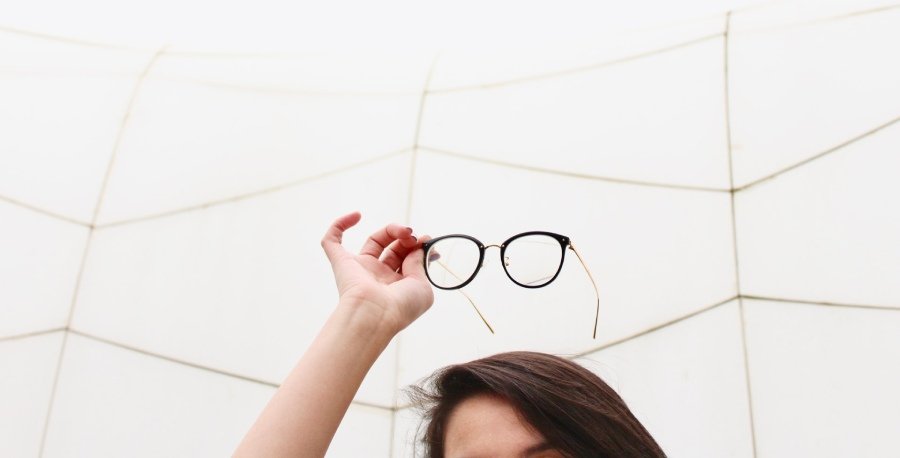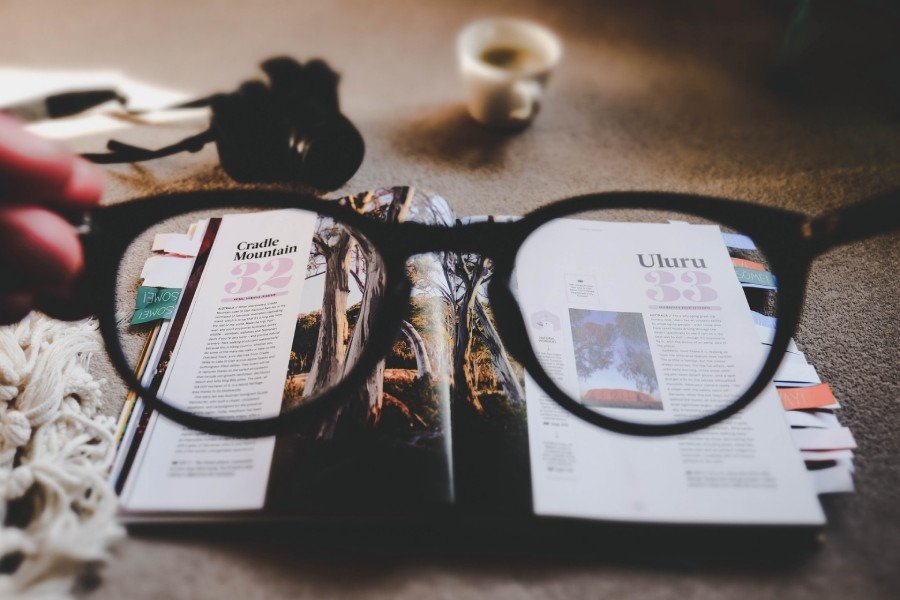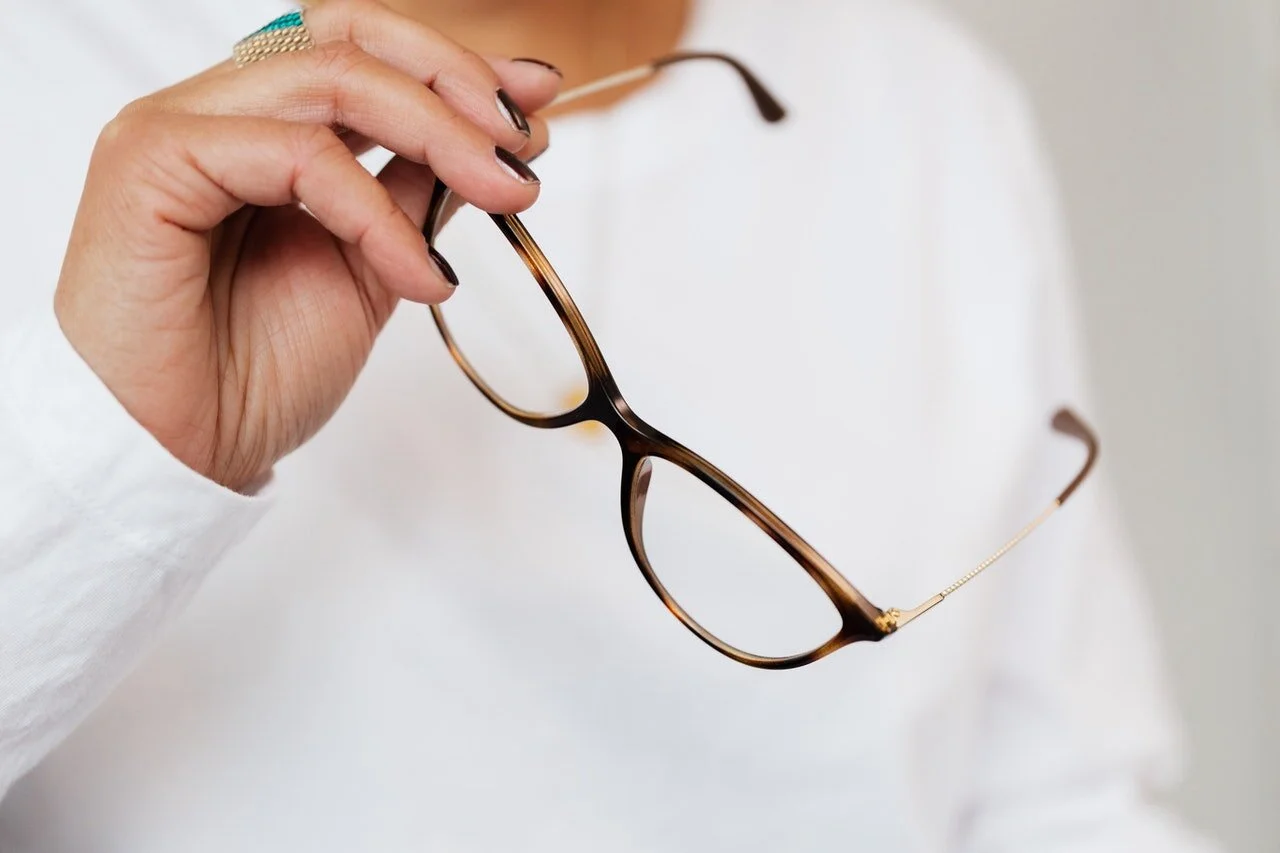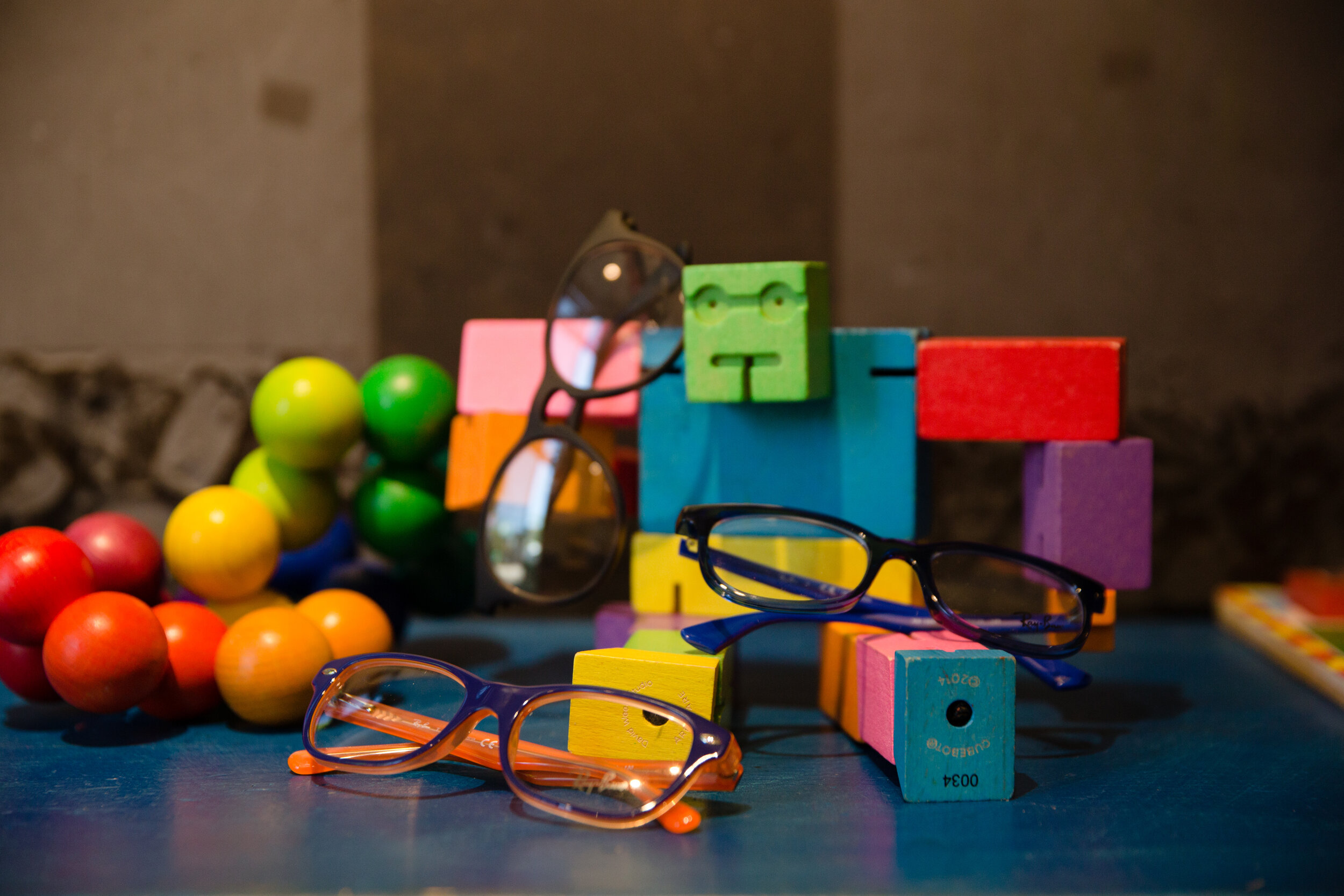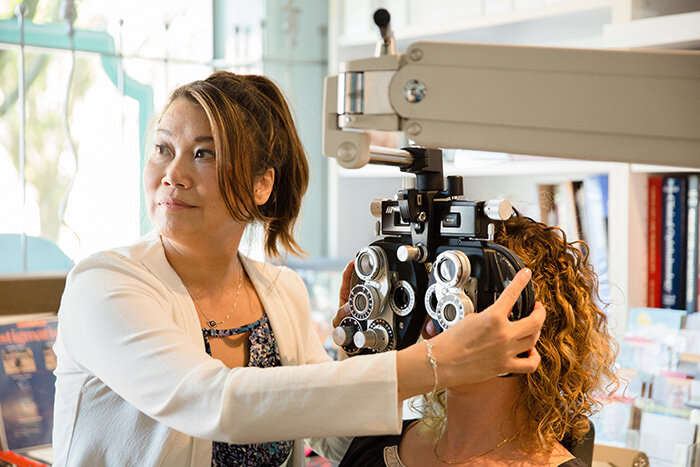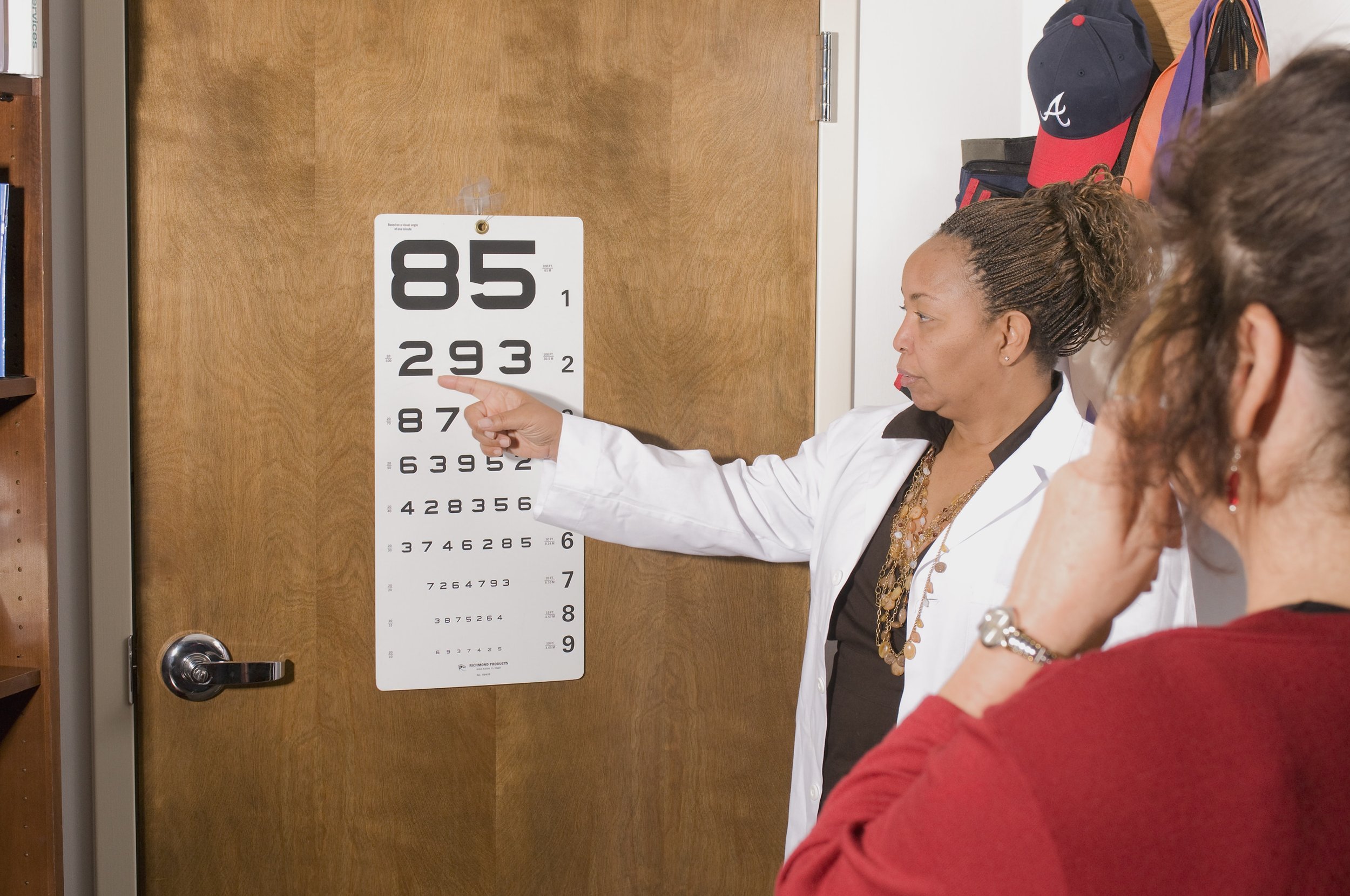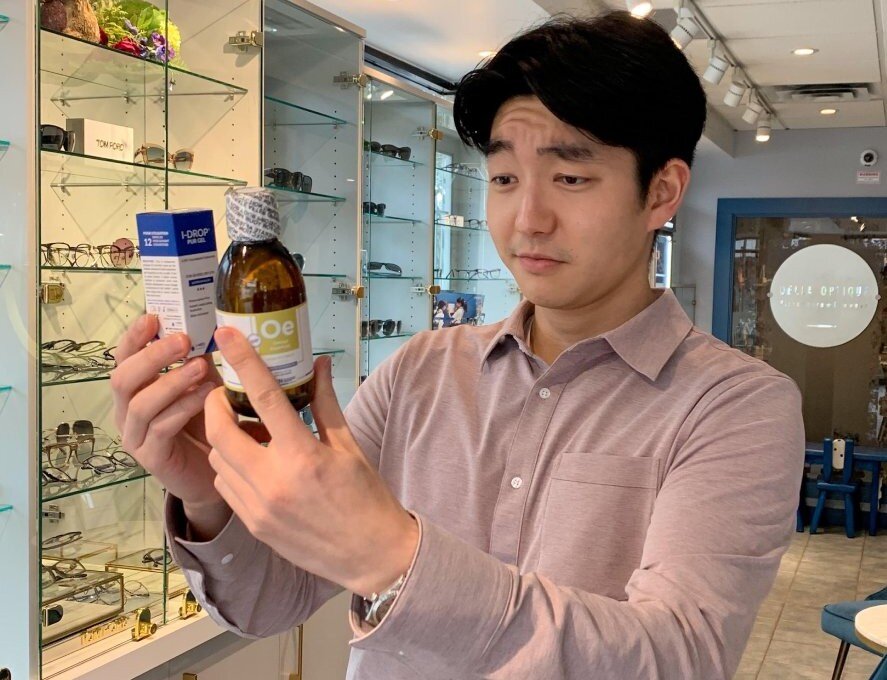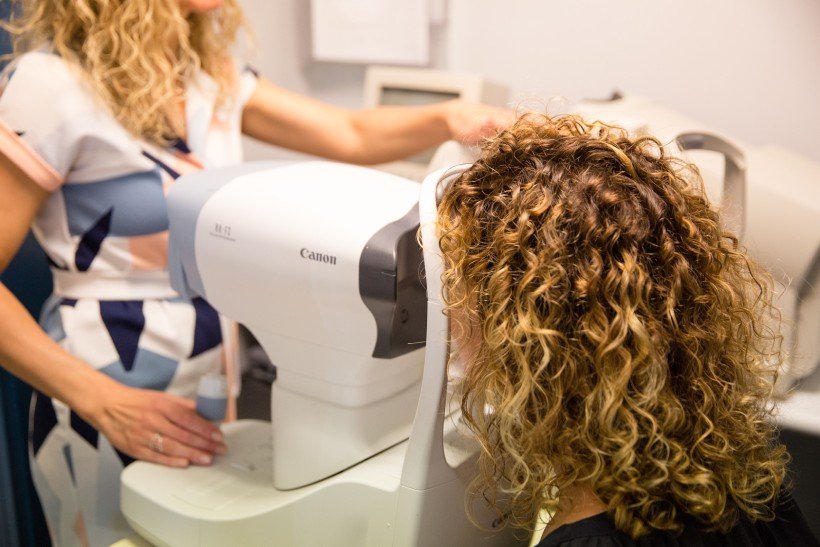How to Properly Clean your Eyeglasses Without Damaging Them
Eyeglasses inevitably get smudged and cloudy. This is caused by a number of factors including skin oils, dry skin flakes, makeup, moisturizers, dust, dirt, and everyday handling.
Having dirty, smudgy, or cloudy glasses causes eye strain and squinting through the dirty lens, which really counteracts the whole purpose of wearing glasses in the first place.
When cleaning your glasses, it is important that you clean them properly to avoid scratching the lens and to prevent permanent damage that can be caused by improper handling and cleaning.
Discover how our personalized eyewear fittings can make a difference today.
The Best Ways to Clean Your Eyeglasses
If your eyeglasses are cloudy, smudged, or dirty, this is the best way to clean them:
Wash your hands.
Washing your hands before cleaning your glasses helps prevent any further smudging or transferring dirt onto your lenses during cleaning.
Use warm water
Run your eyeglasses under warm (not hot) water. Using warm water is best, as hot water can actually damage any special lens coatings, like an Anti-Reflective (AR) coating your glasses may have on them.
Use a tiny bit of dish soap
Add 1-2 drops of dish soap or hand soap to your fingertips. A grease-cutting, lotion-free dishwashing liquid like Dawn is the most ideal cleaning solution when cleaning your eyeglasses. If you don’t have dish soap handy, you can use a lotion-free hand soap to effectively clean your glasses.
Lather up the eyeglass lenses
Gently rub the soap into the eyeglasses, including the lenses, temple, nose pads and bridge for a few seconds. If your glasses are especially dirty, you can use a soft toothbrush to scrub and remove dust in hard-to-reach nooks and crannies.
Rinse the glasses
Use a gentle stream of warm water to rinse your glasses and your hands, washing away any residual dirt.
Dry your hands with a clean towel
Be sure to dry your hands with a lint-free towel once you have finished cleaning your glasses so that you don’t transfer any new dust onto your fresh glasses!
Dry your glasses and lenses with a clean microfiber cloth
Microfiber cloths are the best for cleaning delicate surfaces like eyeglasses, as the fibers within the cloth are tightly woven (hence the name “microfiber”). This means they are soft, absorbent, detract lint and dust, and trap oils and liquids effectively.
Be sure to replace or wash your microfiber cloth frequently, as it will get dirty as well. When washing your microfiber cloth, it’s best to wash by hand with a mild soap that does not contain any bleach, then allow the clean cloth to air dry. If you’re pressed for time, you may also wash your microfiber cloth in the washing machine with like colours and fabrics, using a bleach-free detergent; again, hang to dry. Avoid using a fabric softener when washing your microfiber cloth, as this can coat the fibers, making them less effective for cleaning.
Further reading: How to Prevent Your Glasses From Fogging
Cleaning Your Eyeglasses On The Go
In case your glasses get smudged while you are on the go and away from any running water or dish soap, it is a good idea to carry some cleaning wipes with you.
If you are using a cleaning wipe, you can couple this with a lens cleaner spray to wash away any dirt or debris on the lenses before wiping them clean. If there is any visible dust on the lenses, blow it off first to keep lenses scratch free before cleaning.
If your lenses have a special coating (AR coating, UV protection, anti-scratch) be sure that the lens spray is approved for use on coated lenses.
These handy wipes are great for a quick fix but should not be the only way you clean your glasses in the long-run. Be sure to incorporate the water wash and dish soap method more often than the wipes.
Giving Your Glasses The Extra Special Treatment
If you really want to give your eyeglasses a deep clean, you might want to consider a professional ultrasonic cleaning at your optometrist’s office. An ultrasonic cleaning device gives your frames a thorough clean, which can remove any stubborn buildup on the frames and nose pads.
At-home kits are available for purchase online; however, it’s best to have your optometrist perform this type of cleaning procedure to ensure the lenses are not damaged. Usually, ultrasonic cleaning requires the eyeglass lenses to be removed and this is obviously best performed by a professional. Most optometrists have this machine in their office as a staple, so don’t be afraid to inquire about this service.
How Often Should I Clean My Glasses?
The obvious answer is that you should clean your eyeglasses whenever they are dirty, but as a good rule of thumb, it’s best practice to clean your prescription eyeglasses once a day or each time you wear them. This helps prevent stubborn oily build up on the frames, keep them free from bacteria, and make sure they’re in good shape the next time you go to put them on!
If you’re interested in treating your glasses to an ultrasonic cleaning on occasion, we recommend having this done every six months.
How NOT to Clean Your Eyeglasses
Never clean your glasses without water or a cleaning wipe! Wiping the lenses with a dry cloth and no liquid can cause lens scratches and other permanent damage.
Types of dry clothes to never use include:
Tissue paper (Kleenex)
Paper towels
Napkins
Toilet paper
Your shirt or an article of clothing
Can I Use Windex On My Glasses?
We can understand how some people might associate Windex with eyeglass lenses since their appearance is fairly similar to window glass. However, it is important that you never use Windex to clean your eyeglasses. Windex is a harsh chemical that can permanently damage eyeglass lenses and any special coating they may have on them. Windex may also damage or strip the frames of their plating.
Is It OK to Clean Glasses with Rubbing Alcohol?
Rubbing alcohol, or isopropyl alcohol, should not be used to clean eyeglasses. This harsh chemical also runs the risk of damaging the lenses, their special coating, and the eyeglass frames.
Other products and liquids that should never be used to clean your eyeglasses:
Household glass cleaners or cleaning products with high acid concentrations
Products containing acetone
Vinegar & lemon juice
Saliva (yes, that means no fogging up your lenses with your breath and wiping them with your shirt).
How to Properly Store Your Glasses And Keep Them Clean
Glasses will always require some form of cleaning but proper storage in a glasses case is one of the most effective ways to minimize smudges, cloudy lenses, scratches, and breaks.
Proper storage helps keep dust, dirt, and other debris from landing on your glasses when they are not being worn. This also helps prevent scratches when your glasses (and you) are in transit (e.g. when placing them in your bag between your home and a coffee shop, work, your vehicle, etc.).
Remember to never place glasses lens-down on any surface! This is the quickest way to cause permanent damage to your lenses and although some people say that toothpaste can fix scratched lenses, it sadly cannot.
How to remove scratches from your lenses
Although some people say that toothpaste can fix scratched lenses, it sadly cannot. In fact, there is no cure for scratched lenses, which is why it is so important to clean your glasses the right way and to store them properly when not in use.
While some products do exist that claim to remove scratches, these simply minimize the look of scratches and often damage the lens coating or result in smears on the lenses. To avoid lens scratching, ask your optometrist about a scratch-resistant lens coating and remember to never place your glasses lens-down on any surface!
Clean Glasses Rely on A Proper Fit
Glasses that have not been properly fitted to your face may require more cleaning. It is important to have proper fitting eyeglasses — not only for vision and comfort but also to prevent things that cause your glasses to get dirty.
Glasses that don’t fit properly lead to your eyelashes brushing up against the lenses if they are too tight, your cheeks pressing tightly against the frames and transferring oils, the eyeglass arms squeezing your temples, and the bridge sliding down your nose, causing you to constantly touch the glasses to adjust them. All these pitfalls will increase the frame’s oil absorption and dirt buildup.
Proper-fitting eyewear that suits your face isn’t always the easiest to find. Book a complimentary Eyewear Makeover with our Master Frame Stylist to guarantee the perfect fit and style for your face.

